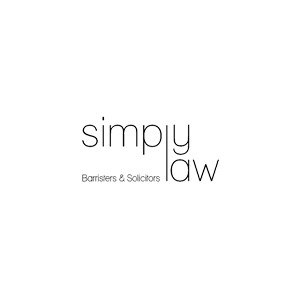Best ESG Advisory & Compliance Lawyers in Tauranga
Share your needs with us, get contacted by law firms.
Free. Takes 2 min.
List of the best lawyers in Tauranga, New Zealand
About ESG Advisory & Compliance Law in Tauranga, New Zealand
ESG stands for Environmental, Social, and Governance. ESG Advisory & Compliance law in Tauranga focuses on helping businesses operate responsibly by aligning with environmental standards, social expectations, and strong governance practices. Companies are increasingly expected to demonstrate ESG integrity by investors, consumers, and regulators. In Tauranga, ESG compliance involves adhering to New Zealand laws around emissions, resource use, fair employment, anti-bribery, transparency, and risk management. Legal advisors in this field help organizations integrate these requirements into their strategies and day-to-day operations, improve their ESG reporting, and avoid legal pitfalls.
Why You May Need a Lawyer
There are many reasons why someone in Tauranga may need legal assistance with ESG Advisory & Compliance. Businesses new to ESG requirements might need help interpreting evolving regulations and building robust compliance frameworks. Companies facing environmental or workplace investigations require expert representation and advice. Mergers, acquisitions, and investments often require ESG due diligence. NGOs and industry groups might seek legal input on governance structures or to review disclosures. Additionally, individuals or companies accused of non-compliance may require representation to defend their interests or mitigate legal risks. An ESG lawyer ensures that obligations are understood and met, helping clients avoid fines, reputational damage, or operational disruptions.
Local Laws Overview
In Tauranga, ESG compliance involves a combination of regional, national, and in some cases, international legal frameworks. Environmental law is governed by the Resource Management Act, which dictates how resources are used and protected. The Zero Carbon Act requires businesses to reduce emissions, setting out reporting obligations and long-term goals. Health and safety in the workplace is regulated through the Health and Safety at Work Act, outlining employer responsibilities. The Financial Markets Authority in New Zealand is increasing its focus on mandatory climate-related disclosures for some listed entities. Local authorities may also have bylaws regarding waste, water, or land use. Social and governance requirements are reflected in the Companies Act, anti-money laundering legislation, and a variety of codes governing ethical business conduct.
Frequently Asked Questions
What is ESG compliance, and why is it important in New Zealand?
ESG compliance means ensuring a business meets environmental, social, and governance standards. In New Zealand, this is important due to legal requirements, investor expectations, and growing consumer demand for responsible business practices.
What are the main pieces of legislation affecting ESG in Tauranga?
Key legislation includes the Resource Management Act, Zero Carbon Act, Health and Safety at Work Act, Companies Act, and recent climate-related disclosure requirements. Local council bylaws may also be relevant.
Are ESG disclosures mandatory for all companies in Tauranga?
Not all companies are required to make detailed ESG disclosures. However, certain listed entities and large financial market participants must meet specific reporting requirements under New Zealand regulations.
How can a lawyer assist with ESG due diligence?
A lawyer can help assess a company's compliance with ESG standards, identify risks, review documentation, and provide legal opinions during mergers, acquisitions, or investments.
What are the penalties for ESG non-compliance in New Zealand?
Penalties vary depending on the area of non-compliance and can include fines, enforcement actions, reputational harm, or even prosecution for serious breaches.
Can small businesses in Tauranga benefit from ESG advisory services?
Yes, small businesses can benefit by ensuring they meet regulations, attract responsible investment, and enhance their reputation among customers and stakeholders.
How often do ESG laws and requirements change in New Zealand?
ESG laws are rapidly evolving in New Zealand. Updates can occur annually or more often, especially with increased focus on climate action and social responsibility.
Is it necessary to have an ESG-specific lawyer, or can any business lawyer assist?
While general business lawyers can help, ESG-specific lawyers have more experience with the specialized legal landscape and can provide targeted advice for complex requirements.
What is involved in creating an ESG policy for a business?
Creating an ESG policy involves reviewing applicable laws, setting measurable goals, establishing procedures, ensuring compliance, and having clear reporting mechanisms. Legal input helps reduce risk.
Who oversees ESG compliance in Tauranga?
Multiple agencies may be involved, including local councils, the Environmental Protection Authority, the Financial Markets Authority, and WorkSafe New Zealand, depending on the area of compliance.
Additional Resources
For further information or assistance, the following resources may be helpful:
- The Tauranga City Council for local bylaws and environmental regulations
- Environmental Protection Authority for national environmental compliance
- Financial Markets Authority for disclosure requirements and corporate governance
- WorkSafe New Zealand for health and safety standards
- Business New Zealand and local chambers of commerce for ESG initiatives and networking
- Institute of Directors New Zealand for governance best practices
Next Steps
If you believe you need legal advice regarding ESG Advisory & Compliance in Tauranga, start by identifying your specific needs or concerns. Gather relevant documents such as business policies, previous compliance reports, or regulatory correspondence. Seek out a reputable lawyer or law firm with expertise in ESG matters. Arrange an initial consultation to discuss your situation and set clear objectives. Stay informed about changing legal requirements, and consider ongoing legal support to keep your business compliant and competitive in an evolving landscape.
Lawzana helps you find the best lawyers and law firms in Tauranga through a curated and pre-screened list of qualified legal professionals. Our platform offers rankings and detailed profiles of attorneys and law firms, allowing you to compare based on practice areas, including ESG Advisory & Compliance, experience, and client feedback.
Each profile includes a description of the firm's areas of practice, client reviews, team members and partners, year of establishment, spoken languages, office locations, contact information, social media presence, and any published articles or resources. Most firms on our platform speak English and are experienced in both local and international legal matters.
Get a quote from top-rated law firms in Tauranga, New Zealand — quickly, securely, and without unnecessary hassle.
Disclaimer:
The information provided on this page is for general informational purposes only and does not constitute legal advice. While we strive to ensure the accuracy and relevance of the content, legal information may change over time, and interpretations of the law can vary. You should always consult with a qualified legal professional for advice specific to your situation.
We disclaim all liability for actions taken or not taken based on the content of this page. If you believe any information is incorrect or outdated, please contact us, and we will review and update it where appropriate.

















